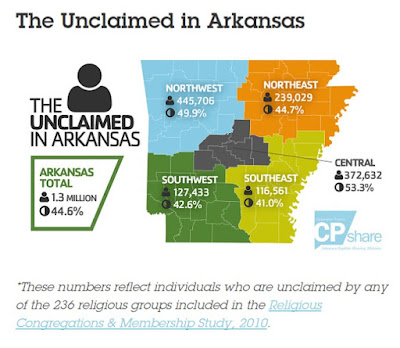***Pretty excited to share this guest post with you from Aleigha Israel. This is an excerpt from her book
Hidden Treasures. Thanks, Aleigha for being willing to share this! Read through to the end to learn more about her and how you can purchase a copy of this book.***

“It’s good enough.”
How many times do we, as Christians, utter that phrase? We tackle a task, only to say towards the end, “that’s good enough.”
But good enough for what? And good enough for whom?
If a football player is required to do warmups for 20 minutes, and he only does 15 (because he gets tired) and declares, “that’s good enough,” is it really? Good enough for what? And good enough for whom?
This morning I made my bed as usual. (If there’s one thing I used to have OCD about, it’s my bed.) I had strict instructions and goals when making my bed. The comforter hangs over the bed only so much. The pillows must be fluffed (and there are six of them); you get the picture. I’ve instilled this OCD in my 8-year-old sister. That’s probably part of the reason why I don’t have it anymore.
In fact, she’s the one who brought to my attention this morning that the comforter wasn’t hanging perfectly straight over the side of the bed. And because I didn’t feel like fixing it, what was my response? You guessed it.
“It’s good enough.”
Which got me thinking. Good enough for what? And good enough for whom? Who do we make our beds for? Who do we cook our meals for? Who do we do the laundry for? The answer’s not me, or us. It’s not our husbands or our families.
The answer is Christ.
We work for Christ.
We play for Christ.
We do everything for Christ.
We don’t (or shouldn’t) do things to receive praise from man. We should do everything with only one figure in mind, Christ. Those aren’t my words either. Take a look at this verse in Ephesians:
“Serve wholeheartedly, as if you were serving the Lord, not people,” EPHESIANS 6:7
And a few more speaking on this topic:
“Whatever you do, work at it with all your heart, as working for the Lord, not for human masters.” COLOSSIANS 3:23
“So whether you eat or drink or whatever you do, do it all for the glory of God.”
1 CORINTHIANS 10:31
This one right here is humbling:
“Am I now trying to win the approval of human beings, or of God? Or am I trying to please people? If I were still trying to please people, I would not be a servant of Christ.” GALATIANS 1:10
Paul tells us in his letter to the Galatians, that if we are serving man rather than God, we aren’t servants of Christ. I don’t know about you, but I would never want to fall under that category! How do we make certain that we aren’t serving man rather than God? And if we are, how do we stop it?
Do we even know the difference? How do we know for sure if we are serving man rather than Christ? Well, for starters, serving the Lord means we are not serving ourselves.
Serving the Lord means we are not
primarily serving others.
Don’t get me wrong, serving others is definitely not a sin, in fact, we are commanded to serve others:
“You, my brothers and sisters, were called to be free. But do not use your freedom to indulge the flesh; rather, serve one another humbly in love.” GALATIANS 5:13
“Each of you should use whatever gift you have received to serve others, as faithful stewards of God’s grace in its various forms.” 1 PETER 4:10
“Love must be sincere. Hate what is evil; cling to what is good. Be devoted to one another in love. Honor one another above yourselves. Never be lacking in zeal, but keep your spiritual fervor, serving the Lord. Be joyful in hope, patient in affliction, faithful in prayer. Share with the Lord’s people who are in need. Practice hospitality.” ROMANS 12: 9-13
In fact, when we’re serving others, we are serving God! “The King will reply, ‘Truly I tell you, whatever you did for one of the least of these brothers and sisters of mine, you did for me.’” MATTHEW 25:40
What brings us pleasure? How do we please ourselves? It could be ice cream, movies, food, shopping, reading, the possibilities are endless. These are some of the ways we serve ourselves rather than God. Am I implying that it’s wrong to shop? Wrong to eat? Wrong to watch movies? No, we would die if we didn’t eat, and we should definitely wear clothes!
What I am saying is this: Enjoying a bowl of ice cream is not necessarily wrong (unless we’re being gluttons, which in that case, it’s sin) but often, we aren’t serving Christ while doing so.
Imagine yourself with a mop in one hand, and a mop bucket in the other (for some people, this may be difficult). Now imagine yourself mopping a floor and doing the best job you’ve ever done before.
Why are you doing this? Because your boss is going to be looking over it later. You stand back and admire your work. The floor shines so brightly you almost have to look away. It looks better than it ever has, if you do say so yourself.
Then your supervisor comes to look it over.
Maybe it’s your father, maybe it’s your mother, maybe it’s a sibling or a boss. Whoever it may be, you’ve been waiting for this moment with great expectation.
What are you waiting for?
Praise. Adoration. Encouragement.
After receiving it, you go happily on your way, rejoicing in another task well done.
But let’s rewind for a minute, back to where we were before the supervisor came to look over your work. Let’s say he comes, but he doesn’t offer you any praise, adoration or encouragement.
Let’s imagine he doesn’t say anything at all. He glances at your work, gives a half-nod of approval and goes on his way. How does that make you feel?
Broken.
Discouraged.
Upset.
Unappreciated.
Why would his reaction have such an effect on you? Because you were mopping the floor for him. You were working for him, you were serving him, and when you didn’t get the reaction you’d expected, you became discouraged.
You see, if you would have mopped the floor for Christ, doing your best, not expecting praise, or anything else in return, you would have had no reason to grow discouraged because of your overseer’s reaction.
Children could win the prize at being the best man pleasers in the world. They do things to please their parents and they blossom under praise and encouragement. It’s a part of who they are.
But as they grow older, they must be taught they aren’t doing these things to please their parents, but they are doing it to please the Lord. And when children do things to please the Lord, it also pleases their parents! Even the best, most sacrificial things (if done to please men) are worth nothing in God’s eyes.
I love to give gifts. I love seeing the smile spread over a little child’s face, or the joy on an adult’s. Gift-giving is contagious, and I can truthfully say I love giving gifts much more than I enjoy receiving them.
But I didn’t use to have such a good attitude about giving gifts. In fact, I used to give gifts to please man, rather than God.
An exciting idea formed when I was around twelve-years-old. I wanted to collect Bibles to give to people in need. I started out using my own money, but the Lord soon blessed me by other family members and friends who mailed Bibles and sent money. I was ecstatic!
Many times, as a child, our Thanksgivings would be spent serving the homeless in our community. It was something we all looked forward to with great excitement. It was such fun to serve others and enjoy the feeling of purpose. It was around Thanksgiving when I first had the chance to give out some of these Bibles.
The gym was set up with tables to serve the homeless a hot Thanksgiving meal, and we had many volunteers. Timidly, I approached a table and handed a lady a Bible. My mother, not very far behind me, became my spokeswoman and talked with the lady for a few minutes while I listened.
Giving away Bibles became a favorite thing to do, and I found homes for every Bible that came into my possession. Family members and friends were quick to offer encouragement and praise, and I soaked it all in.
It wasn’t until a few months later, that I discovered something was wrong. Something wasn’t right. I didn’t feel like I did when I first started giving away Bibles. And then I noticed something else. The praise I had gotten from friends and family members had slowly waned, and with it, went my joyful desire to give away those Bibles.
That was when I realized something else.
My Bible giving days may have started out with an innocent motive. But I had let the praise of man enter my heart and turn my motives around. I had slowly, but surely, become a man pleaser.
So, I stopped giving away Bibles.
Why? Because my motive was all wrong. And until I could fix it, I decided to stop giving away Bibles.
That may not have been the wisest decision, but as a twelve-year-old, it was the best one I could think of. Since then, I’ve learned that giving gifts for God’s glory, reaps a much better reward than giving them to receive praise from man. Just as working for Christ, and working to serve Him, rather than man, is not only Biblical, but it also makes us feel better in the process.
(Oh, and we’ve also went back to giving away Bibles, in bags we put together for the homeless!)
Are we serving man, rather than God? If the answer is “yes,” then we must ask the Lord’s forgiveness and endeavor to change our perspective.
Here are a few tips to help in that process:
v Be quick to help others
v Practice hospitality
v Seek wisdom
v Show forgiveness
v Make time to worship Christ
v Don’t work (or give gifts) and expect something in return
v Stifle hidden motives when giving gifts. (In other words, don’t buy a gift because you are going to get something in return)
v Love others without condition
If I find myself working for man instead of God, or if I’m being grumbly about having to do a certain chore (maybe because I’m too tired, or the chore seems redundant or too big) I think of the chore not as something I have to do, but something I get to do.
So instead of saying, “I have to go fold this load of laundry,” try saying, “I get to fold this load of laundry.” It will not only make you feel better, because you are taking the godly approach and being thankful, but you’ll also be amazed at what it does to you psychologically!
Let’s make it a daily practice to work on these things and endeavor to serve Christ with our whole heart. Let’s not do things “good enough” for Christ. Let’s do things to the best of our ability.
He deserves our very best.












